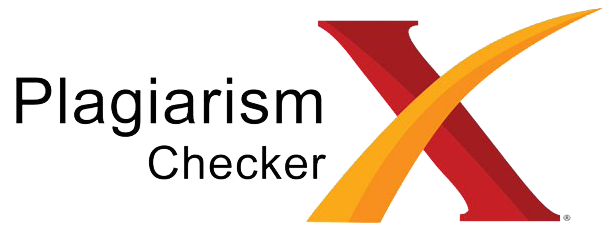Transformation of Management Accounting in the Digital Era: Current Challenges and Opportunities
Sari
Keywords: digital transformation, management accounting, digital technologies, decision-making, efficiency
Teks Lengkap:
Download PDFReferensi
Al-Zaqeba, M. A. A., Jarah, B. A. F., Ineizeh, N. I., Almatarneh, Z., & Jarrah, M. A. AL. (2022). The effect of management accounting and blockchain technology characteristics on supply chains efficiency. Uncertain Supply Chain Management, 10(3), 973–982. https://doi.org/10.5267/j.uscm.2022.2.016
Almatarneh, Z., Jarah, B. A. F., & Jarrah, M. A. AL. (2022). The role of management accounting in the development of supply chain performance in logistics manufacturing companies. Uncertain Supply Chain Management, 10(1), 13–18. https://doi.org/10.5267/j.uscm.2021.10.015
Alsharari, N. M. (2019). Management accounting and organizational change: alternative perspectives. International Journal of Organizational Analysis, 27(4), 1124–1147. https://doi.org/10.1108/IJOA-03-2018-1394
Alsharari, N. M., & Al-Shboul, M. (2019). Evaluating qualitative research in management accounting using the criteria of “convincingness.” Pacific Accounting Review, 31(1), 43–62. https://doi.org/10.1108/PAR-03-2016-0031
Alvarez, P., Sensini, L., Bello, C., & Vazquez, M. (2021). Management Accounting Practices and Performance of SMEs in the Hotel Industry : Evidence from an emerging economy Business Economics Laboratory , UC , Buenos Aires , Argentina Department of Management and Innovation Systems ( DISA / MIS ), University of S. International Journal of …, 12(2), 24–35. https://doi.org/10.30845/ijbss.v12n2p3
Ascani, I., Ciccola, R., & Chiucchi, M. S. (2021). A structured literature review about the role of management accountants in sustainability accounting and reporting. Sustainability (Switzerland), 13(4), 1–25. https://doi.org/10.3390/su13042357
Asiaei, K., Bontis, N., Alizadeh, R., & Yaghoubi, M. (2022). Green intellectual capital and environmental management accounting: Natural resource orchestration in favor of environmental performance. Business Strategy and the Environment, 31(1), 76–93. https://doi.org/10.1002/bse.2875
Balstad, M. T., & Berg, T. (2020). A long-term bibliometric analysis of journals influencing management accounting and control research. Journal of Management Control, 30(4), 357–380. https://doi.org/10.1007/s00187-019-00287-8
Bella, S., Apriyanti, N., & Sriwijayanti, H. (2023). Enhancing Financial Management and Accountant Roles: A Study on the Role of Technological Advancements. SEIKO : Journal of Management & Business, 6(2), 435–446.
Bhimani, A. (2020). Digital data and management accounting: why we need to rethink research methods. Journal of Management Control, 31(1–2), 9–23. https://doi.org/10.1007/s00187-020-00295-z
Burritt, R. L., Herzig, C., Schaltegger, S., & Viere, T. (2019). Diffusion of environmental management accounting for cleaner production: Evidence from some case studies. Journal of Cleaner Production, 224, 479–491. https://doi.org/10.1016/j.jclepro.2019.03.227
Gunarathne, N., & Lee, K. H. (2021). Corporate cleaner production strategy development and environmental management accounting: A contingency theory perspective. Journal of Cleaner Production, 308(May), 127402. https://doi.org/10.1016/j.jclepro.2021.127402
Korhonen, T., Selos, E., Laine, T., & Suomala, P. (2020). Exploring the programmability of management accounting work for increasing automation: an interventionist case study. In Bussiness Law binus (Vol. 7, Issue 2). http://repository.radenintan.ac.id/11375/1/PERPUS PUSAT.pdf%0Ahttp://business-law.binus.ac.id/2015/10/08/pariwisata-syariah/%0Ahttps://www.ptonline.com/articles/how-to-get-better-mfi-results%0Ahttps://journal.uir.ac.id/index.php/kiat/article/view/8839
Ostaev, G. Y., Suetin, S. N., Frantsisko, O. Y., & Alexandrova, E. V. (2020). Assessment of the effectiveness of the management of agricultural organizations in management accounting. Revista Amazonia Investiga, 9(28), 260–271. https://doi.org/10.34069/ai/2020.28.04.29
Oyewo, B. M. (2021). Outcomes of interaction between organizational characteristics and management accounting practice on corporate sustainability: the global management accounting principles (GMAP) approach. Journal of Sustainable Finance and Investment, 11(4), 351–385. https://doi.org/10.1080/20430795.2020.1738141
Petera, P., & Šoljaková, L. (2020). Use of strategic management accounting techniques by companies in the Czech Republic. Economic Research-Ekonomska Istrazivanja , 33(1), 46–67. https://doi.org/10.1080/1331677X.2019.1697719
Riduwan. (2018). Menyusun Metodologi Penelitian.
Schaltegger, S., Christ, K. L., Wenzig, J., & Burritt, R. L. (2022). Corporate sustainability management accounting and multi-level links for sustainability – A systematic review. International Journal of Management Reviews, 24(4), 480–500. https://doi.org/10.1111/ijmr.12288
Sugiyono. (2019). Metodologi Penelitian.
Susanto, A., & Meiryani, M. (2019). Antecedents of environmental management accounting and environmental performance: Evidence from Indonesian small and medium enterprises. International Journal of Energy Economics and Policy, 9(6), 401–407. https://doi.org/10.32479/ijeep.8366
Vale, J., Amaral, J., Abrantes, L., Leal, C., & Silva, R. (2022). Management Accounting and Control in Higher Education Institutions: A Systematic Literature Review. Administrative Sciences, 12(1). https://doi.org/10.3390/admsci12010014
Varaniūtė, V., Žičkutė, I., & Žandaravičiūtė, A. (2022). The Changing Role of Management Accounting in Product Development: Directions to Digitalization, Sustainability, and Circularity. Sustainability (Switzerland), 14(8). https://doi.org/10.3390/su14084740
Vărzaru, A. A., Bocean, C. G., Mangra, M. G., & Mangra, G. I. (2022). Assessing the Effects of Innovative Management Accounting Tools on Performance and Sustainability. Sustainability (Switzerland), 14(9). https://doi.org/10.3390/su14095585
Wolf, T., Kuttner, M., Feldbauer-Durstmüller, B., & Mitter, C. (2020). What we know about management accountants’ changing identities and roles – a systematic literature review. Journal of Accounting and Organizational Change, 16(3), 311–347. https://doi.org/10.1108/JAOC-02-2019-0025
DOI: https://doi.org/10.37531/mirai.v8i2.5282
Refbacks
- Saat ini tidak ada refbacks.



